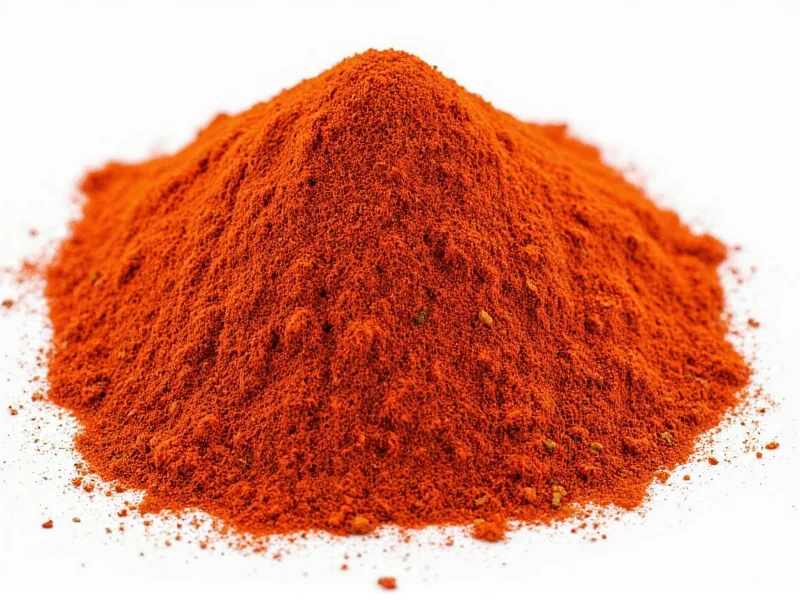When you're in the middle of cooking and realize you've run out of paprika, knowing what spice can replace paprika becomes essential. This common kitchen dilemma affects home cooks worldwide, especially when preparing dishes like Hungarian goulash, Spanish chorizo, or roasted vegetables that rely on paprika's distinctive flavor. The right substitute preserves both the taste and visual appeal of your dish while working with ingredients you likely already have in your pantry.
Understanding Paprika's Unique Qualities
Paprika isn't just a single spice but a category with varying heat levels and flavor profiles. Before selecting a replacement, identify which type you need to substitute:
- Sweet paprika – Mild, slightly sweet flavor with no heat
- Hot paprika – Contains cayenne pepper for noticeable heat
- Smoked paprika – Made from smoked peppers, adding depth and smokiness
Each variety serves different culinary purposes, which determines the most appropriate replacement. What spice can replace paprika effectively depends entirely on which characteristic matters most for your specific recipe—color, heat level, or smoky flavor.
Top Paprika Substitutes Ranked by Effectiveness
| Substitute | Best For | Substitution Ratio | Flavor Impact |
|---|---|---|---|
| Chili powder | Regular paprika in most recipes | 1:1 | Slightly more complex with garlic/onion notes |
| Cayenne pepper | Hot paprika needs | 1/4 tsp cayenne per 1 tsp paprika | Significantly hotter, less sweet |
| Chipotle powder | Smoked paprika replacement | 1:1 | Smokier, slightly sweeter than smoked paprika |
| Tomato paste + spices | Color replacement | 1 tbsp tomato paste + 1/4 tsp garlic powder | Adds moisture, changes texture slightly |
| Pimento powder | Sweet paprika alternative | 1:1 | Milder, fruitier flavor profile |
Detailed Analysis of Each Paprika Alternative
Chili Powder: The Most Accessible Substitute
When considering what spice can replace paprika in everyday cooking, chili powder emerges as the most practical option for regular paprika. While commercial chili powder contains additional spices like cumin and garlic powder, it provides a similar color and moderate heat level. This makes it an excellent paprika replacement for chicken dishes, stews, and rubs. For best results in recipes asking what to use instead of paprika in goulash, use a 1:1 ratio but reduce other spices in your blend to avoid overpowering the dish.
Cayenne Pepper: For Heat Without the Color
If your recipe specifically calls for hot paprika, cayenne pepper serves as the most direct heat substitute. However, be cautious with proportions—cayenne is significantly hotter than even hot paprika. When determining how to substitute chili powder for paprika in spicy applications, remember that 1/4 teaspoon of cayenne typically equals 1 teaspoon of hot paprika. This substitution works well for dishes where heat matters more than color, such as certain meat marinades or spicy sauces.
Smoked Alternatives: Maintaining That Essential Smokiness
Replacing smoked paprika presents unique challenges since the smokiness is its defining characteristic. Chipotle powder provides the closest flavor profile for smoked paprika alternatives for stews and braises. Made from smoked jalapeños, it delivers similar earthy notes with slightly more heat. For a milder option, consider adding a few drops of liquid smoke to regular paprika substitutes. This approach works particularly well for what spice can replace paprika in barbecue recipes where smokiness is paramount.
Color-Focused Substitutes for Visual Appeal
Sometimes paprika's primary role is visual rather than flavorful—providing that signature red hue to deviled eggs, potato salads, or seafood dishes. In these cases, a combination of tomato paste and mild spices creates an effective paprika replacement with similar color. Mix one tablespoon of tomato paste with 1/4 teaspoon each of garlic powder and onion powder, then thin with water as needed. This solution works perfectly for what to use instead of paprika when appearance matters most, though it adds slight moisture to dry rubs.
Dish-Specific Paprika Substitution Guide
The ideal paprika substitute varies by cuisine and preparation method. Understanding these nuances helps you select the best replacement for your specific needs:
- For Hungarian dishes – Use sweet paprika substitute without heat like pimento powder to maintain authentic flavor
- In Spanish recipes – Prioritize smoked alternatives like chipotle powder for paella and chorizo dishes
- For meat rubs – Combine chili powder with a touch of cumin for best results as a paprika replacement
- In egg dishes – Focus on color substitutes since flavor impact is minimal in deviled eggs or salads
- For vegetarian cooking – Tomato-based substitutes work exceptionally well in bean dishes and roasted vegetables
Creating Your Own Custom Paprika Blend
When facing the question of what spice can replace paprika, consider making a homemade alternative. This approach gives you complete control over flavor intensity and heat level. For a basic sweet paprika substitute, blend equal parts dried bell pepper and mild red chili. To mimic smoked paprika, add a small amount of liquid smoke to your blend. These homemade paprika replacement options allow customization based on your specific recipe requirements and personal taste preferences.
Storage Tips for Paprika Substitutes
Proper storage maintains the potency of both paprika and its substitutes. Keep all ground spices in airtight containers away from light and heat. Most substitutes retain optimal flavor for 6-12 months, though chili powder and cayenne typically last longer than fresh alternatives like tomato paste mixtures. When using what spice can replace paprika regularly, consider buying smaller quantities to ensure freshness, as stale spices significantly impact your dish's final flavor.
Common Mistakes to Avoid When Substituting Paprika
Many home cooks make critical errors when searching for paprika alternatives. The most frequent mistake is using too much cayenne as a substitute, resulting in overly spicy dishes. Another common issue involves substituting fresh peppers for ground paprika without adjusting quantities—remember that dried spices are significantly more concentrated. When determining paprika substitute ratios for cooking, always start with less than you think you need, then adjust to taste after cooking has begun.











 浙公网安备
33010002000092号
浙公网安备
33010002000092号 浙B2-20120091-4
浙B2-20120091-4